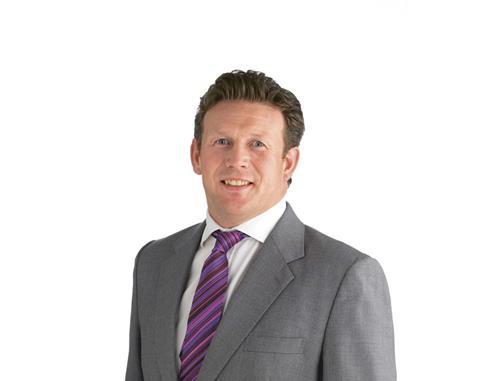Offshore financial centres have suffered a reputational bruising and tougher regulation in the aftermath of the 2008 crash. But many law firms have found ways to survive and thrive.
Offshore law firms have plenty of justification for feeling more upbeat these days. There are encouraging signs of recovery in the corporate, M&A, and investment funds market in the Cayman Islands, Bermuda and elsewhere. Business in Asia continues to expand. Greater regulation is bringing additional fee income to the likes of Appleby, Walkers and Carey Olsen. And the push for greater transparency in offshore centres has cleaned up their image in the process.
Speaking in the Commons in September, David Cameron declared: ‘I do not think it is fair any longer to refer to any of the Overseas Territories or Crown dependencies as tax havens. They have taken action to make sure that they have fair and open tax systems.’ Collas Crill group partner Paul Wilkes, who is based in Jersey, captures the mood among offshore lawyers: ‘David Cameron will get a few free drinks if he is ever around on our island.’
Expansion
The most exciting new development for the offshore legal sector is the growth story coming from Asia, including China and Singapore, where there is demand from businesses and the wealthy to place their money and assets offshore.
Expert legal advice on British Virgin Islands (BVI) corporate structures, in particular, is much sought after by Asian investors. Asia represents a large and expanding share of BVI-incorporated companies, of which there are more than 800,000.
In 2012, Mourant Ozannes opened in Hong Kong, and in BVI too. Hong Kong managing partner Paul Christopher explains: ‘It was important for our Hong Kong strategy to be able to service our Asian clients with BVI products. The BVI was an obvious part of the jigsaw that was missing in terms of the credible offshore jurisdictions that we covered [Cayman Islands, Jersey and Guernsey.].’

It was important for our Hong Kong strategy to be able to service our Asian clients with BVI products. The BVI was an obvious part of the jigsaw that was missing
Paul Christopher, Mourant Ozannes
The BVI Business Company (BVI BC) is used by corporate clients, for example, in M&As and private equity investments, as well as by high- and ultra-high-net-worth individuals for holding their assets, including luxury real estate, Christopher says.
Harneys now also has an office in Hong Kong to draw in business not only for its operation in the BVI, where the firm started up, but also for its rapidly growing Cayman Islands practice.
Hong Kong managing partner Jonathan Culshaw says that, despite the popularity in Asia of the BVI BC, Cayman-incorporated holdings are the vehicle of choice for Hong Kong listings: ‘They are a lot more flexible than a typical Hong Kong company in terms of redeemable shares and distribution.’
The Cayman Islands is perhaps best known as the principal offshore jurisdiction for hedge funds. Culshaw says that Harneys’ three-year old Cayman funds practice in Hong Kong is ‘booming’, thanks in no small part to an expansion of Asia’s underdeveloped hedge fund market. ‘Asia hasn’t seen a slowdown comparable [to the US and Europe] and right now there are a tremendous number of people who are looking into starting Cayman Islands funds of all kinds,’ he says.
‘Our Hong Kong office has experienced a period of tremendous growth, more than doubling its revenues over the past two years.’ It is not just corporate, banking and finance, and investment funds, but also litigation that is driving the top line. Harneys’ Hong Kong office more than trebled in size to reach 25 fee-earners over the past two years, making it the second-largest offshore law firm in Hong Kong after Maples & Calder, and now the firm has a dedicated litigation team of 12 lawyers in Hong Kong. ‘This has been a big growth area for us. We are involved in pretty much every material piece of litigation that involves a BVI element,’ Culshaw says. This includes disputes over shareholder agreements, corporate restructuring and contentious trust disputes.
In order to attract Asian clients, Channel Islands-based Carey Olsen recently established a presence in the BVI by merging with BVI firm Hempel and Boyd and – in the Caymans – by opening an office in December.
‘The Channel Islands brand is very strong around the world,’ says Russell Clark, deputy managing partner of Carey Olsen’s Guernsey office, highlighting the fact that the firm advised on more than half of all funds established in Guernsey in 2012.
‘But there are markets, such as Asia, where other jurisdictions are better known. In order to make our firm less of a Channel Islands brand and more global we needed to be able to offer services from other jurisdictions,’ he adds.
Appleby Global (one of offshore’s own ‘magic circle’ that includes Walkers, Carey Olsen and Conyers Dill & Pearman) has been in Hong Kong for 20 years and, in 2012, opened an office in Shanghai. Frances Woo, Appleby group chairman and Hong Kong managing partner, explains: ‘The Chinese are now becoming more sophisticated about protecting their wealth, succession planning and accessing capital markets.’ An example of this is the fact that they are looking closer to home than the BVI and the Caymans, at the Seychelles, where the firm has been ‘very successful’ in the past 12 months. The Indian Ocean island’s rise can be attributed to its relative proximity to China, and its good tax treaty networks with African countries – including Double Taxation Avoidance Agreements (DTAAs) – where Chinese foreign direct investment has been booming for some years.
Appleby is also looking at Singapore and elsewhere in Asia to provide trust and fiduciary advice to the burgeoning millionaire and billionaire set. ‘We are going to see a lot more growth in Asia,’ Woo predicts. Private client and wealth management is also expanding, although not at the same rate, in the Middle East, while instructions from the super-wealthy in Europe and North America are likely to remain stable, Woo predicts.
Since opening an office in 2009, Cayman Islands’ Walkers has become the largest offshore firm in Singapore with 11 fee-earners, including investment funds partner Thomas Granger and senior counsel Robert Foote. Both relocated from Walkers’ Hong Kong office. From the Lion City, the now global firm serves south-east Asia, as well as India. Driving the firm’s fortunes in the region are the Singapore-based foreign banks, and the economic rise of Indonesia, says Walkers’ managing partner Ingrid Pierce. ‘There is a lot of foreign direct investment [into Indonesia], and a number of new private equity deals out of the country,’ she notes. Walkers has advised on IPOs in Singapore where Cayman companies have sometimes served as listing vehicles. The offshore magic circle firm recently advised Singapore oil and gas company KrisEnergy on its Singapore IPO, worth SGD1.3bn (£650m).
Insolvency and corporate recovery are thriving too, particularly in Asia, Pierce points out. ‘We have had an enormous amount of work in that field coming out of Singapore and Hong Kong. You would not think that so many years after the downturn and with the economy in an upturn phase in many places that [area] would still be so strong,’ she says. Walkers’ work in this area includes advice linked to liquidation, restructuring and refinancing of investment funds.
Collas Crill, in Singapore since 2011, has been ‘primarily focused on promoting and selling the Channel Islands structures to Asian investors’, says Wilkes. On the private client side these include Jersey and Guernsey trusts and foundations to help wealthy families manage and protect their assets, while on the corporate side the firm advises on Guernsey private equity funds and limited partnerships, among other areas. However, Wilkes says that Collas Crill also offers expert legal advice in other jurisdictions to its Asian clients through non-exclusive alliances with firms in the Caymans, the BVI and New Zealand.
But offshore firms are not just spreading their wings in Asia. Building on the strong reputation of Jersey and Guernsey in private equity and real estate funds, Ogier, originally from Jersey, became the first offshore law firm to open in Luxembourg in 2012. Managing partner Nick Kershaw says: ‘Many private equity and real estate funds invest in Europe through a Luxembourg holding company. [Our office in] Luxembourg enables us to advise clients on the establishment of the fund, and also to provide a one-stop shop advising on the establishment of the underlying holding companies and other structures that are related to the fund.’ Luxembourg is also a popular destination for real estate investments owing to its favourable double tax treaties with countries including France, Germany and the UK. Kershaw says: ‘We are really very excited about Luxembourg. It is going to be a great source of work for us.’
Traditional markets
Indeed, notwithstanding the Asian allure, offshore lawyers remain sanguine about the more traditional markets of North America and Europe.
As Tom Maher, director of Isle of Man offshore firm Dougherty Quinn explains, the mainstay of every firm in offshore financial centres, such as those in the Isle of Man, Jersey and Guernsey, has traditionally been transactional work, such as the formation of investment funds. This dried up after 2008, but is now coming back: ‘What we have seen over the last five years has been a lot of insolvency and restructuring on a global basis. But the good news now is that transactional work is increasing.’
IPO activity, for example, is picking up. In the second quarter of 2013 the number of IPOs in offshore markets more than doubled to 17 compared with the previous three months, and their combined value increased around five times to $2.4bn, according to research into major offshore markets by Appleby. Planned IPOs were also on the rise with 22 deals worth $1.7bn in the pipeline. Maher says: ‘We are seeing a number of new structures setting up in the Isle of Man, particularly in the mining and energy industries, with a view to listing in the next two to three years in Toronto or London,’ he says. The Isle of Man is one of the most popular non-UK jurisdictions for companies on the London AIM market, and is also well represented on the main market of the LSE.
Encouragingly, after several years of volatility, offshore M&A is stabilising. In five of the last six quarters, the latest data relating to the three months to June 30 shows that the number of offshore M&A deals (with an average deal value of $64m) has hovered around the 500 mark, according to Appleby. One of the largest offshore M&A deals in that quarter was the $941m acquisition of an 18% stake in the Cayman Islands-incorporated Eurasia Drilling Oil by a company owned by Russian billionaire Alexander Djaparidze.
Establishment of new funds, which slowed down significantly during the crisis, is reviving too. Culshaw says: ‘There has been an uptake in the US on the funds side within the last year. The volume of fund creations has started to return to pre-crisis level.’
Furthermore, structured finance transactions, particularly collateralised loan obligations (a form of asset-backed security), have been on a sharp upward trend over the past 18 months, driven by New York banks, according to Woo.
The securitisation market is also improving, says David Cooke, director and head of the corporate department in the Bermuda office of Conyers Dill & Pearman. Cooke points out that Bermuda has recently seen a healthy expansion in insurance-linked securities (ILSs) – such as the risk-based catastrophe bonds, reportedly first used after Hurricane Andrew, the Calfornia’s Northride earthquake.
‘A lot of players outside the insurance space are coming in to participate in ILSs and that has resulted in a new interest in Bermuda investment funds,’ Cooke says. The island is known for offshore insurance and reinsurance, and is one of the main providers of insurance services to the US, but the British overseas territory is diversifying beyond this market with forthcoming legislation that creates a new class of exempt investment funds.
Although transactional activity is increasing, offshore law firms are still busy with litigation, including fund, shareholder and trust disputes. Although, as Woo notes: ‘We are possibly at a bit of a turning point. Litigation is still strong but it’s not as crazy as it was around the time of the crisis.’
Offshore firms are also growing by developing niche areas. Revenues at Dougherty Quinn were up 22% in the first quarter of the financial year ending 30 September, in part owing to the ‘phenomenal growth’ of the Isle of Man’s ship and aviation registers, with their super-yachts, large containerships, and private and corporate jets. Since its launch in May 2007, the Isle of Man Aircraft Register has registered over 500 aircraft. DQ has advised on the delivery, flagging and registration of nine large containerships over the past 18 months. Furthermore, DQ and Collas Crill are reporting healthy performances advising on e-gaming, including licensing and business ventures, particularly in the Crown dependencies of Jersey, Guernsey and the Isle of Man.
Private client and wealth management have generally been unaffected by the global financial crisis.
On the non-contentious private client side, the number of new structures formed, such as trusts and foundations, is decreasing, says Clark, who heads Carey Olsen’s trust and fiduciary department in Guernsey. But he adds: ‘We are seeing the complexity, sophistication and value of those structures increasing.’
This is because ‘hyper-wealthy’ families are dispersed more widely across the globe. Also, it is an increasingly complex regulatory world. ‘You need to have structures that are flexible enough to work for people who have beneficiaries in the US, Canada, the Middle East and Africa. A lot more thought needs to be given as to how to structure the trusts and foundations of the companies that we use as vehicles to hold the family wealth,’ Clark says. ‘The days, if they ever existed, of somebody walking in saying “can I have your standard discretionary trust please” and signing on the dotted line are long gone.’
The new Guernsey Foundations Law, which came into force in January, has given firms in this market and based in this jurisdiction a boost. Clark says: ‘Foundations are another platform from which to sell our administration services to clients who regard trusts as a very unusual and funny English concept.’ Of the 13 Guernsey foundations created to date, six have been prepared by Carey Olsen.
‘We never thought that we were going to overtake Liechtenstein or Panama as the jurisdiction of choice for foundations work, but there has been a steady uptake,’ Clark says.
Regulation
Increased regulation brings a new level of compliance for offshore centres (see box above), but, as Culshaw puts it: ‘I don’t see this as being problematic. There are offshore jurisdictions like the BVI and the Cayman Islands which are prepared to sign up to all this stuff because we provide a legitimate cog in the international financial structure. We are not looking to hide people’s money. We are quite happy to hand over relevant tax information to tax authorities.’
In any case, as Kershaw points out, increased regulation means more income for lawyers. ‘It’s been a business opportunity for us. We have been advising clients on US Fatca [Foreign Account Tax Compliance Act] already.’ For example, Kershaw is upbeat about the opportunities for offshore lawyers offered by the Alternative Investment Fund Managers Directive, which covers the management, administration and marketing of alternative investment funds and came into effect on 22 July. Kershaw also welcomes the G5 initiative. All of this brings with it requirements for additional regulatory advice and is a good source of additional work, particularly in the Channel Islands.

It is certainly going to be a challenge for clients to comply and they are going to need a lot of help from various providers, including their accounting and law firms.
Ingrid Pierce, Walkers
Pierce, whose firm now has a team dedicated to provide regulatory advice, adds: ‘It is certainly going to be a challenge for clients to comply and they are going to need a lot of help from various providers, including their accounting and law firms. But our regulatory and compliance work has expanded enormously.’ Carey Olsen’s tax practice has been kept ‘very busy’ by greater regulation too. But Clark says: ‘It is increasing costs for our clients. Part of it is due to the unwritten agenda of some [onshore] jurisdictions, which is just to make offshore jurisdictions less appealing by making them more expensive by increasing the regulatory burden on them.’
If the view appears somewhat nuanced on Fatca and its repercussions, offshore lawyers are more clearly sceptical about the government’s plan to create a central registry of ultimate beneficial owners of companies (maintained by Companies House), and to make this information available to national law enforcement and tax administration authorities.
At their summit in June, all G8 countries committed to publish action plans setting out the concrete steps they will take to create registries that would increase transparency of beneficial ownership; the UK has also secured agreements from all the British overseas territories and Crown dependencies to publish their own action plans.
But Cooke warns against unintended consequences if these measures are not applied across the board, with businesses going elsewhere to incorporate. ‘It could affect the competitiveness of not only the offshore jurisdictions, but also the onshore jurisdictions.’
BIS is currently seeking views on the beneficial owners registry, including on whether or not this information should be made public.
Pierce welcomes Cameron’s recent acknowledgement that some offshore jurisdictions should no longer be referred to as tax havens, thanks to their co-operation in international initiatives boosting tax transparency. She concludes: ‘It just shows that things are moving in the right direction. There is greater recognition that offshore financial centres such as the Caymans and others have made great strides in the last few years.’
Marialuisa Taddia is a freelance journalist
































No comments yet